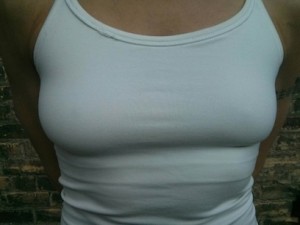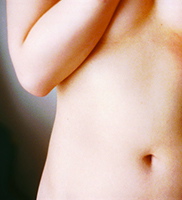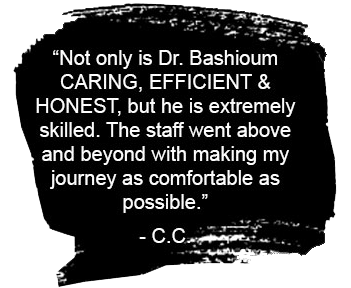Breast Asymmetry: What to do about it?
January 13th, 2015
Breast asymmetry is a very common concern among women, adolescents and adults alike. No one is born with perfectly symmetric breasts and mild to moderate differences in breast shape, or a 1-2 cup size difference, or position in the developing adolescent are to be expected. Moreover, breast asymmetries that persist beyond puberty affect more than half of all women! In fact, one study in the Plastic and Reconstructive Surgery Journal, out of 100 women who wanted breast augmentation with implants, 88 percent had natural asymmetries. At a time when our body and mind are changing rapidly, when is breast asymmetry a cause for concern? Having uneven breasts may impact a young woman’s body image. Let’s review the pros and cons of surgical intervention with an emphasis on newer techniques such as using lipo-suctioned fat to correct asymmetry, called fat transfer.
A recent study published in the December issue of the Plastic and Reconstructive Surgery Journal highlights the psychological impact of breast asymmetry on adolescents. The study suggests that patients with breast asymmetry have poorer emotional well-being and lower self-esteem than their female peers. This is not a surprising revelation given that high rates of breast dissatisfaction have been reported within the adolescent female population, especially during early adolescence when there is greater variance among peers. Psychological issues are important in this group of young women, and these issues include social embarrassment, low self-esteem, depression and isolation from classmates. Problems that occur relate to sexual relationships and cultural beliefs. The majority of these patients are young, healthy individuals, and the psychological and social impact of these conditions is significant. Physicians and parents should be aware that seemingly small differences to an examiner’s eye might have a considerable impact on the sometimes fragile psyche of an adolescent.
Surgical options for correction exist. These include improving breast symmetry by combining different techniques using implants, autologous or your own fat transfer, liposuction, breast reduction and/or myocutaneous flaps. Correction of breast asymmetry often involves multiple surgical procedures. The best policy is early intervention with education, support and counseling. The key steps in successful management are diagnosis, appropriate referral, counseling, optimal timing of surgery and avoiding unnecessary surgery in a developing young adult. In the rare instance that the asymmetry causes such distress that your doctor recommends surgery, please consult with an experienced plastic surgeon about your options for surgery.
Newer techniques such as autologous fat transfer, offer a less invasive way to correct breast asymmetry with more natural appearing results. Fat grafting is natural, flexible and versatile. It allows the plastic surgeon to gradually sculpt and reconstruct the breast to a natural looking shape and feel. Like other reconstructive techniques, fat grafting is a staged procedure with results achieved over time. Fat is harvested from the abdomen, flanks and thighs and then is injected into the breasts through small incisions. This is an outpatient procedure, with each stage carried out every 3 to 6 months. The number of stages required for completion varies on an individual basis. The results are long-lasting and the patient also receives the added benefit of liposuction at the donor sites.
Implant-Free Breast Enlargement
March 26th, 2013
Implant-free breast enlargement is now a new choice. In a meeting that I attended last week in Miami, recent innovations were presented by the American Society of Plastic Surgeons at the “First-Of-Its-Kind Regenerative Medicine Summit.†Colleagues Dr. Roger K. Khouri and Dr. Kamran Khoobehi, two respected pioneers in this field shared their findings. Simply described, your own fat cells can be gently removed by liposuction from selected areas and then carefully transferred to another location.
Nipntuck Naturalâ„¢ is a revolutionary new way of thinking about plastic surgery. I am excited to offer patients the option to choose new implant-free breast enlargement surgery, as debuted on the KQRS Morning Show broadcast in Las Vegas.
Regenerative medicine features this specialized fat grafting procedure. Typical donor sites for fat cells include areas of the abdomen or flanks. Fat grafts naturally contain a population of adipose specialized cells. The regenerative properties of these cells are particularly effective for these new procedures, because the fat cells become a natural living part of the tissues where it is placed.
This revolutionary technique is not limited to cosmetic breast surgery. Fat grafting is an outpatient, clinic-based procedure and the quick recovery is changing many aspects of cosmetic plastic surgery.
Series continues.


